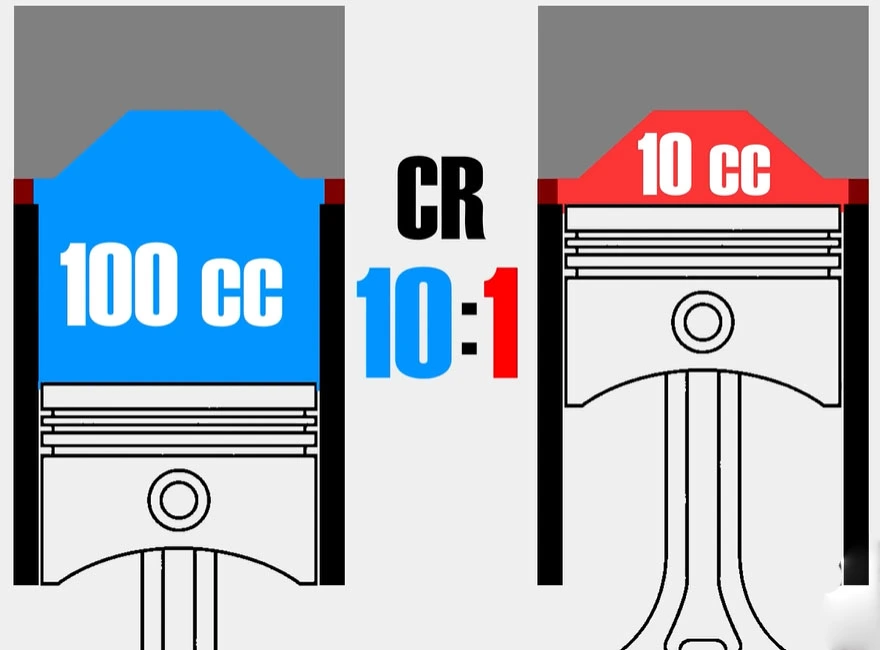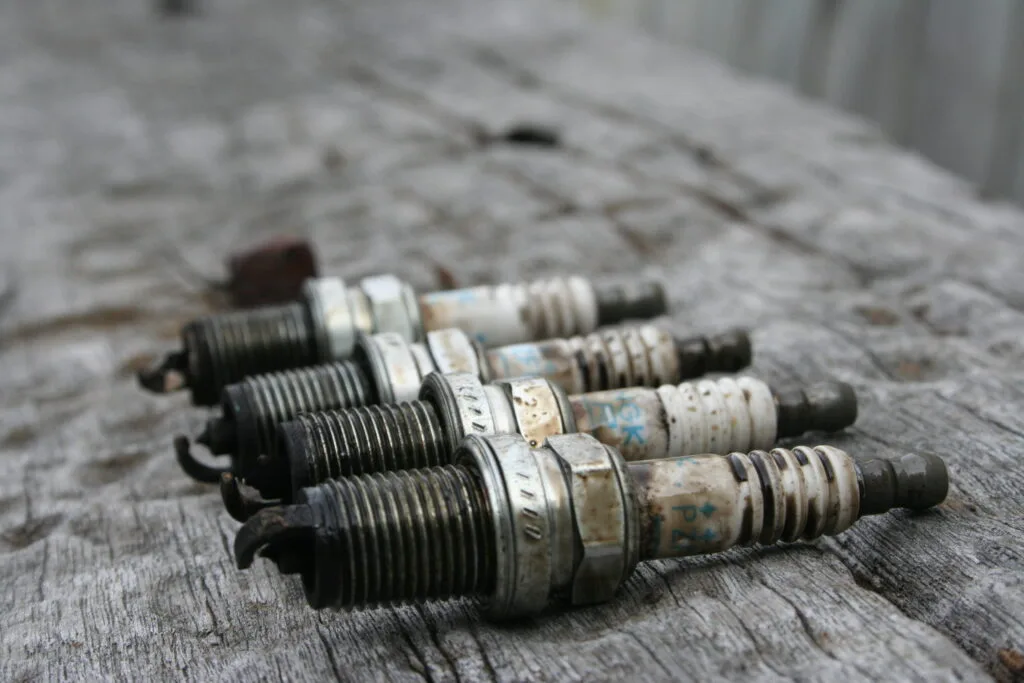Common problems of a car that hesitates to start are worn-out battery, damaged spark plugs, issues with the air filter, problems with the camshaft, air leaks, bad starter, and so on. So, when it is happening, you must have to diagnose the problems and do whatever possible to fix them before the problems get worst.
This article will cover almost everything related to a car that hesitates to start. So stick until the end to find out what really is happening inside your car.
Car hesitates to start the first time; causes.
There is a problem with the battery or the connection.
The car battery provides the necessary voltage to turn the engine over and start it. As the battery ages, it will no longer be able to provide enough voltage to start the engine. It may, instead, take some time. The battery’s ability to provide cranking amps decreases as it ages. This is especially noticeable as the weather gets colder.
If the battery is in good working order, the problem could be with the connection. If the battery cables or posts are corroded, the battery will be unable to transmit the power required to start the vehicle.
What can you do?
Make a visual inspection of the battery connections to ensure that everything is in working order. You can clean it with baking soda and water if necessary. You should also check the battery’s health on a regular basis. You can get a free check at most auto parts stores. Replace the battery as soon as it begins to die so that you are not left stranded.
The starter that isn’t working.
The vehicle may turn over more slowly as the starter motor wears out. An electromagnet activates when the key is turned, forcing the starter gear to engage. This action causes the starter to accelerate the rotation of the flywheel until the engine can take over. The car will struggle to start if it is unable to spin quickly enough.
Bench testing the starter is the best way to ensure that it is in good working order. Most auto parts stores will do it for you for free if you don’t know-how.
Diesel engines have a low compression ratio.
Wear of the cylinder-piston group is a common cause. Carbon deposits, sludge, and varnish contamination will form inside the engine during operation. The process is unavoidable; over time, carbon deposits obstruct the compression rings’ ability to function properly. As the pressure drops, it becomes insufficient to ignite the fuel mixture.

It’s best to clean the carbon buildups by performing an engine flush to avoid things getting worse. You can do so with this product because it works well.
Crankshaft position sensor failure.
The car will start even if the crankshaft position sensor fails because the engine can run without it, but it will take longer to start. A faulty crankshaft position sensor is frequently caused by metal material on the sensor, and removing and cleaning the sensor is a quick and easy way to solve this problem. This product can be used to clean.
Purge valve that is broken or failing.
The purge valve’s job is to keep the fuel vapors created in the fuel tank from escaping into the atmosphere. Fuel vapors can enter the intake manifold and engine cylinders if the valve is faulty or leaks.
The fuel is of poor quality.
Few people consider the type of fuel that goes into their vehicle. In fact, you might be looking for the cheapest option without considering the consequences to the engine. Poor fuel quality, on the other hand, causes clogged injectors, failing spark plugs, and a slew of other problems.
Engine sensor failure.
Because of a faulty engine sensor, the engine control module may inject too much or too little fuel into the engine during startup, resulting in a rich or lean air-fuel mixture. Because your car has so many sensors, it’s crucial to check the error codes first, as we discussed earlier.
If your car hesitates to start when the engine is warm or cold, it could be a sign that the engine coolant temperature sensor is malfunctioning. Starting problems can also be caused by a faulty MAF sensor or a bad camshaft position sensor.
In cold weather, the car takes longer to start; Why?
Having trouble starting the car when it’s cold could be due to the battery’s inability to supply the necessary cold-cranking amperage. You’ll see two different amperage ratings when you select a battery. When looking at cold cranking amperage, there are two things to keep in mind: first, the cranking amps (CCA).
Temperatures that are mild allow the battery to supply the full amount of cranking amperage. Problems begin to arise when the weather gets colder.
The battery’s CCA rating tells you how many amps it can supply for 30 seconds at 0°F. The CCA rating will always be lower than the typical cranking amperage as a result.
Cars are designed to run on a battery’s stated capacity, but older batteries can experience issues. When a battery’s CCA starts to degrade, it’s time to replace it.
Because the CCA isn’t needed during the summer months, you may not notice the issue. You should check the health of your car battery before winter sets in. You can avoid being stranded with a car engine that won’t start if you know that it’s struggling.
Car hesitates to start and smells like gas; why?
There can be several causes for this issue, and a gas smell in your car is something that should not be ignored.
Spark Plugs that have come loose.
Your spark plugs might have loosened over time if they were never tightened to the proper torque. Spark plug seals may not be seated properly, which could cause your truck to smell of gas.
If this is the case, the exhaust fumes from your engine will enter your car’s HVAC system through the air intake. It’s as if you’re going to get gas fumes spewed directly into your vents from the engine.

The threaded part of your spark plugs will have washers that seal everything. There may be a gas smell if these washers are cracked, missing, or broken.
Fumes from the exhaust system.
Exhaust fumes are another source of gas in your vehicle. These fumes are produced when you burn gas to accelerate your car, and they should be pumped out through the exhaust pipe and away from your vehicle.
You will notice a gas smell in your car if you have an exhaust leak before your catalytic converter. The catalytic converter cleans and scrubs the exhaust, so if you smell something, it was probably before that.
Some related FAQs.
Is there a chance that timing will cause the car to hesitate?
An engine with delayed timing, even by a few degrees, can appear to stutter. Its strength dwindles. A timing light can be used to check ignition timing, and on vehicles with a distributor, it can be adjusted.
Does my car hesitate when I press the gas pedal?
The gasoline may contain water. You may have a faulty accelerator pump or power circuit if you have a carburetor.
Clean or replace the carburetor or replace the accelerator pump. It’s possible that the fuel filter is clogged.
What causes carburetor sluggishness?
A faulty power valve inside the carburetor can cause hesitation, stumble, or misfire when the engine is under load. A carburetor uses an intake vacuum to pull fuel through its metering circuits. The intake vacuum decreases as engine load increases and the throttle is opened wider.
We hope you’ve got the answer that you’ve needed for the question, “Car Hesitates To Start” reading our explanation. If you have more questions just leave a comment below, and we are really straightforward to help you further. And if you need to review about Best ford Engine just check below page. Thank you.
